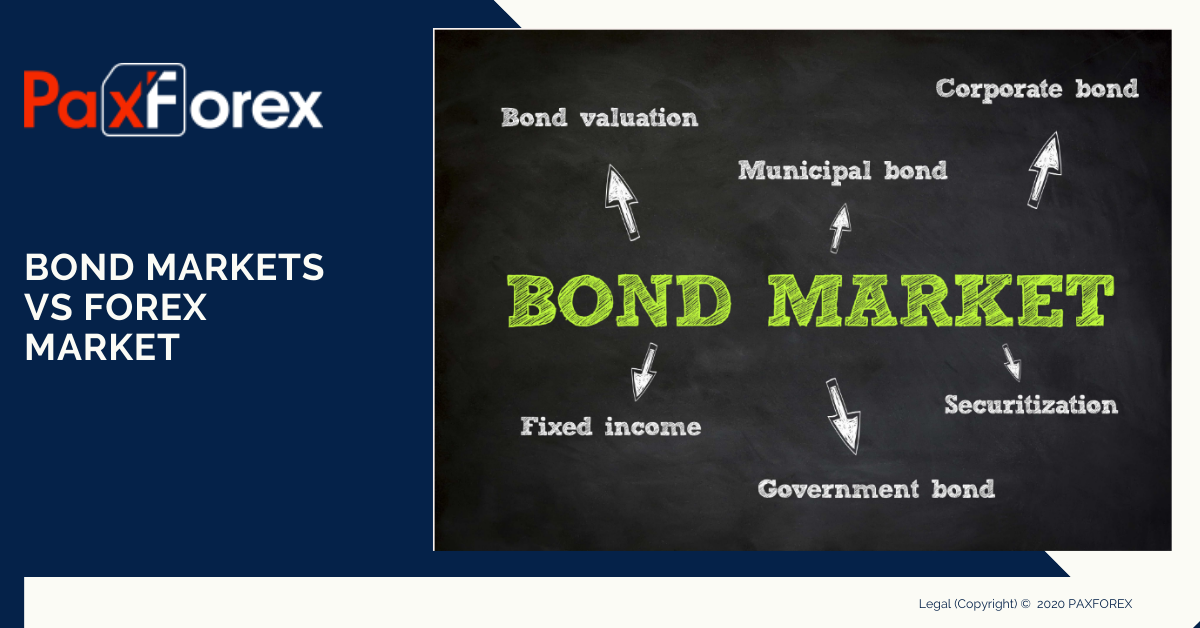
When comparing the bond market to the currency exchange marketplace, you’d think that there would be few similarities between the two entities. This line of thinking is fairly conventional wisdom, as many feel that those who invest in bonds generally do not play the forex market at the same time. After all, bonds are usually considered to be fairly low risk, low reward investment opportunities, while forex is a much more dynamic and high-potential forum for investing.
The global markets are really just one big interconnected web. We frequently see the prices of commodities and futures impact the movements of currencies, and vice versa. The same is true with the relationship between currencies and bond spread (the difference between countries\' interest rates): the price of currencies can impact the monetary policy decisions of central banks around the world, but monetary policy decisions and interest rates can also dictate the price action of currencies.
Government bonds are securities used to fund the government’s debt. These bonds are never in danger of default, since the government has the legal right to print money. So, obviously, this is one of the safest investments one can make, since there is virtually no risk. Also, the government follows through and pays these bonds off on schedule, so other investment tools’ performances tend to be compared directly to that of the government bond as a sort of standard benchmark. Most importantly, these bonds are used to fund government spending. So when the bond market fluctuates, it is an indication of change within the government, its policies, its budgets, and so on.
These erratic or dramatic fluctuations provide confidence levels in governmental policies and strength levels of its deficit. This obviously impacts the value of the government’s currency. The term-yield structure of the governmental bond market provides signals for a currency’s movement. A discerning trader can keep his eyes on the bond market to have an idea of the direction the currency pair he is watching will travel, whether it will continue its current trend or begin a trend reversal. The currency feels the impact of any bond market fluctuation as the market reacts to the bond market and is reflected by the fluctuation of currency prices throughout the trading day.
When you compare the bond market with the currency exchange marketplace, it quickly becomes apparent that these are two wildly different investment opportunities. One represents a “slow and steady” approach to investing that certainly has its time and place. In fact, you would do well to diversify your investment portfolio with several types of bonds. Forex, on the other hand, feels completely different in a real-world context. Those involved in forex understand and appreciate the lightning quick access to the forex marketplace. This enables real-time trades and incredible liquidity – or an easy ability to exit a position at any point of the day.







